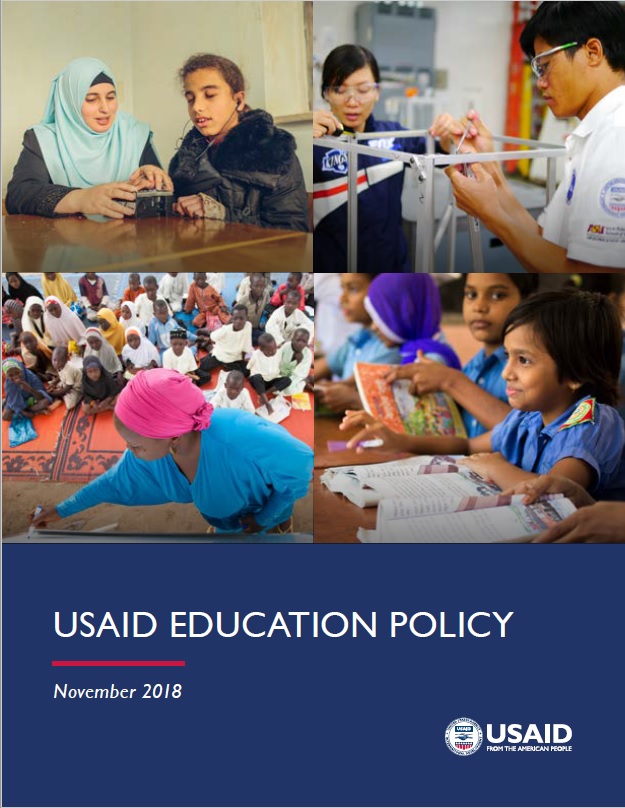Press Release Shim
Speeches Shim
For Immediate Release
Today, the United States Agency for International Development (USAID) announced a new education policy to guide the Agency's investments in international education. This new policy will focus resources on programs that produce measurable learning outcomes for students.
2018 USAID Education Policy ![]() (pdf - 2 MB)
(pdf - 2 MB)
The new education policy highlights key areas in which USAID will strengthen its approach, apply new methods, and engage with new partners to ensure more children and youth -- including girls -- have the opportunities to learn and succeed. It emphasizes the imperative to provide education to children affected by crisis and conflict; recognizes the important role of non-state actors, including faith-based organizations and the private sector, in providing educational opportunities; and stresses the need to strengthen transparency, accountability, and the collection and use of data. Under the policy rolled out today, USAID also underscores its commitment to ensuring girls have equal opportunity to quality education.
USAID's Education Policy has four priorities: 1) increasing access to quality education that is safe, relevant, and promotes social well-being; 2) ensuring children and youth gain quantifiable literacy, numeracy, and social-emotional skills that are foundational to future learning and success; 3) fostering skills needed to lead productive lives, gain employment, and contribute positively to society; and 4) build the capacity of higher education institutions in developing countries to conduct and apply research, deliver quality education, and engage with communities. This new policy will also increase USAID's engagement with faith-based and private-sector schools.
Well-educated populations are necessary for countries to lead their own future and make progress on their journey to self-reliance. However, 303 million children, adolescents, and youth between the ages of five to 17 - or one out of every five around the world - are out of school. More than 617 million children and adolescents do not have minimum proficiency in reading or math, regardless of whether or not they attend schools.
Each year, USAID works with partners in approximately 50 countries to help children and youth gain access to the education and skills they need to be productive members of society. This work advances U.S. foreign policy goals, promotes U.S. and international security, and helps accelerate economic growth at home and abroad.
USAID's new education policy supports the objectives of the U.S. Government Strategy on International Basic Education, the National Security Strategy, and the Department of State and USAID Joint Strategic Plan.


Comment
Make a general inquiry or suggest an improvement.